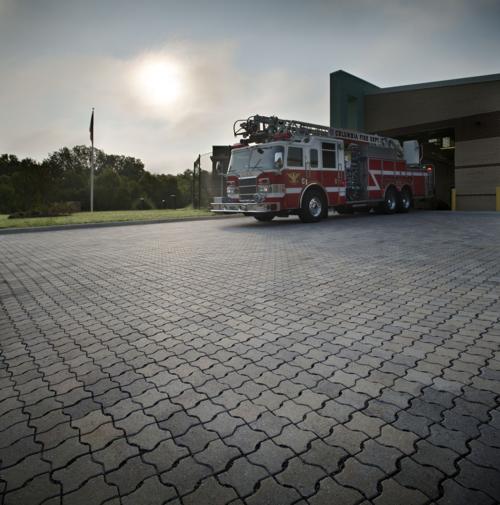Each year, thousands of Arizona residents email or call Rosie Romero’s radio show with questions about everything from preventing fires in their chimneys to getting rid of tree roots invading their sewer system. His goal is to provide answers that suit the specific lifestyle wherever someone lives in Arizona.
Q: I’m interested in installing a water harvesting system in my yard. I’m going to have two 1,000-gallon tanks to hold water that I harvest off the roof of my house. But I’m trying to decide whether to place those tanks on top of a bed of pavers or a concrete pad. Would sand-set, interlocking concrete pavers be sufficiently strong to hold that weight? Or do I need something more substantial under the tanks.
A: Pavers should work just fine; after all they actually use them on the taxiways at large airports. You’ll need to do about 6 inches of excavation, of course, and then put down a two-inch layer of crushed rock on undisturbed soil to provide part of the foundation for the pavers (it’s called the ABC layer for aggregate base course) and then sand on top of that. But you don’t need to put down concrete at all. Talk to a paver manufacturer about the product you are going to use as well getting tips on construction. To have it done right, consider hiring a licensed paver installer. The advantage of pavers, of course, is that if some crack or break, you can replace them without redoing the entire paved area.
Q: I have a patio on the back of my property and I want to put a roof on it. My house is on a one-acre lot in unincorporated Pima County and there are no homeowners’ association rules about what I can do with my property. But I do want to respect my neighbors’ privacy and allow generous side-yard and backyard setbacks. I’m thinking the patio cover will be about 5 to 7 feet away from the back wall between our lots. Is that OK?
A: That’s probably going to be enough space for the setback. But you need to talk to the Pima County building department about what the legal setbacks have to be between properties. You also want to allow enough space in setbacks so that fire department equipment can have access during an emergency.
Q: I have a south-facing covered patio that I’m thinking of covering with screens. I’m wondering if that might improve the value of my house when I sell it. How much value would it add?
A: There’s no real formula for estimating what that might do to the sales price of your home. But generally speaking, it would seem that a home with a screened patio would be more desirable than an unscreened patio because it would keep out insects, snakes and lizards. You should check as well with a Realtor about the possibilities.
Q: I have a wrought iron view fence that gets full sun. I’d like to cover the iron slats with a flowering vine, but I don’t want a lot of litter from whatever I plant there. What would you suggest?
A: Tangerine beauty crossvine is one beautiful possibility that is reportedly low in litter. One vine we definitely would not plant is cat’s claw. We get many, many calls from homeowners who want to get rid of it and are very frustrated. Once you plant cat’s claw, you may have it forever. We had cat’s claw at our house, in fact, and I wanted to remove it because it kept us from checking for termites on our wall. It took years and years before we were rid of it. We kept tearing it out and tearing it out until it finally croaked.





